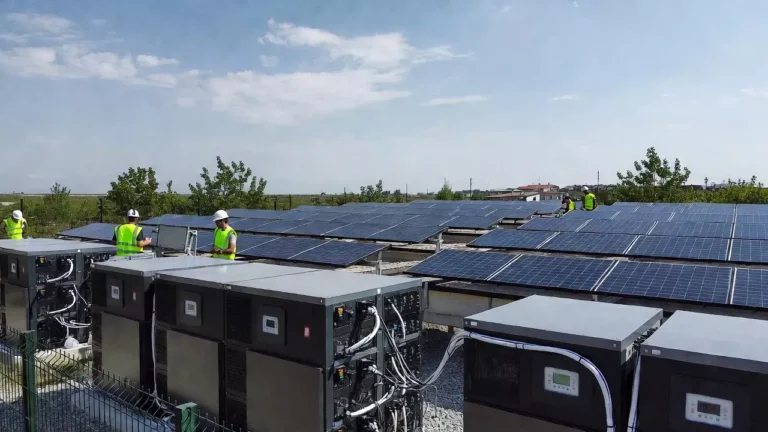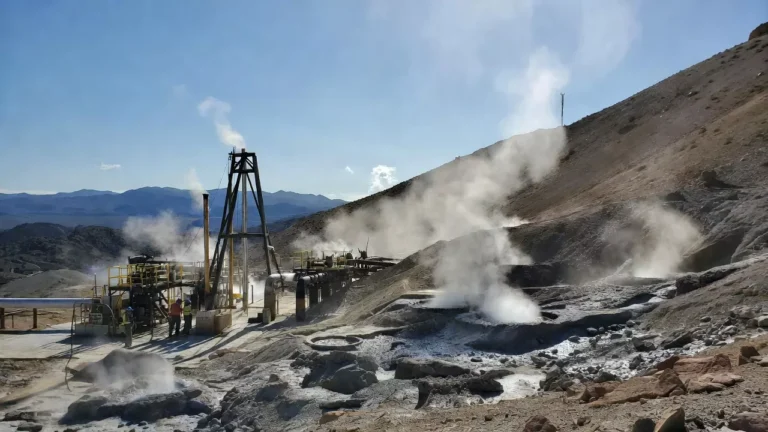
Marubeni and ExxonMobil Forge Major Low-Carbon Ammonia Partnership to Power a Cleaner Future
In a landmark development that underscores the accelerating global transition toward cleaner energy, Marubeni Corporation and Exxon Mobil Corporation have signed a long-term offtake agreement for the supply of low-carbon ammonia, marking a pivotal step in building a robust, cross-border supply chain for decarbonized fuel. This collaboration represents a crucial stride toward meeting Japan’s climate goals and boosting low-emissions energy exports from the United States.
Under the agreement, Marubeni will purchase approximately 250,000 tonnes of low-carbon ammonia annually from ExxonMobil’s forthcoming facility in Baytown, Texas. This facility, once operational, is set to become the world’s largest site dedicated to producing low-carbon hydrogen and ammonia. The low-carbon ammonia will primarily be supplied to the Kobe Power Plant in Japan, a facility fully owned by Kobe Steel, Ltd., as part of a broader decarbonization strategy for the nation’s power and industrial sectors.
Marubeni has also committed to acquiring an equity stake in ExxonMobil’s low-carbon hydrogen and ammonia project, further deepening the strategic partnership between the two companies. The deal not only strengthens Marubeni’s role in the global energy transition but also supports ExxonMobil’s ambition to lead in low-emissions energy technologies.
A Vision for Scalable, Clean Hydrogen and Ammonia Production

ExxonMobil’s Baytown facility is expected to be capable of producing up to 1 billion cubic feet (bcf) per day of low-carbon hydrogen—virtually carbon-free thanks to a carbon capture process that removes approximately 98% of CO₂. From this hydrogen, more than 1 million tons of low-carbon ammonia can be produced each year. The final investment decision (FID) for the project is slated for 2025, contingent upon favorable regulatory approvals and continued policy support.
The scale and scope of the Baytown facility signal a new era in the development of hydrogen as a core energy carrier. With demand for hydrogen expected to grow significantly—particularly in Asia, where countries like Japan and South Korea are aggressively targeting net-zero emissions—the project’s timing and capabilities align well with emerging market needs.
“This is another positive step forward for our landmark project,” said Barry Engle, president of ExxonMobil Low Carbon Solutions. “By using American-produced natural gas we can boost global energy supply, support Japan’s decarbonization goals, and create jobs at home. Our strong relationship with Marubeni sets the stage for delivering low-carbon ammonia from the U.S. to Japan for years to come.”
Japan’s Growing Demand for Ammonia in Energy Transition
Japan has emerged as a global leader in promoting ammonia as a clean fuel for decarbonization. Unlike conventional fossil fuels, ammonia can burn without emitting carbon dioxide, making it a viable alternative fuel in power generation and industrial processes. It can also be co-fired with coal, allowing existing power infrastructure to transition gradually to lower-carbon operations.
The Kobe Power Plant is one of several Japanese facilities set to incorporate low-carbon ammonia into its fuel mix by the end of the decade. By fiscal year 2030, the plant aims to co-fire ammonia with traditional fuels, significantly reducing its carbon emissions. The ammonia supplied by Marubeni through its deal with ExxonMobil will be critical in achieving these targets.
“Marubeni will take this first step together with ExxonMobil in the aim of establishing a global low-carbon ammonia supply chain for Japan through the supply of low-carbon ammonia to the Kobe Power Plant,” said Yoshiaki Yokota, Senior Managing Executive Officer at Marubeni. “Additionally, we aim to collaborate beyond this supply chain and strive towards the launch of a global market for low-carbon ammonia. We hope to continue to actively cooperate with ExxonMobil, with a view of utilizing this experience and relationship we have built to strategically decarbonize our power projects in Japan and Southeast Asia in the near future.”
Supporting Hard-to-Abate Sectors and Industrial Transformation
Marubeni’s ambitions extend well beyond the energy sector. Through this new ammonia supply chain, the company aims to support decarbonization across multiple hard-to-abate sectors. These include steelmaking, chemicals, heavy transportation, and shipping—industries where direct electrification is challenging and alternative fuels are essential for emissions reductions.
In particular, Japan’s steel and chemical sectors are actively exploring ammonia and hydrogen as means to cut their significant carbon footprints. Low-carbon ammonia provides both an energy source and a hydrogen carrier, making it attractive for global trade and industrial use.
Moreover, as regional economies in Southeast Asia begin to formalize their climate commitments, the experience and infrastructure being developed by Marubeni and ExxonMobil could serve as a foundation for expanding low-carbon fuel use across the Asia-Pacific region. In doing so, this partnership supports not only Japan’s decarbonization strategy but also contributes to the broader global effort to tackle climate change.
Policy Support and Global Energy Security
The realization of this ambitious project hinges in part on continued government support, both in the United States and Japan. Incentives for carbon capture, clean hydrogen, and sustainable fuels—such as those embedded in the U.S. Inflation Reduction Act and Japan’s Green Transformation (GX) strategy—are instrumental in bridging cost gaps and scaling up production capacity.
In addition to environmental benefits, the project enhances global energy security. By leveraging domestically produced natural gas in the U.S. and converting it into low-carbon hydrogen and ammonia, the facility diversifies the international energy supply chain. This reduces reliance on conventional oil and gas and provides an energy export opportunity for the United States, positioning it as a clean fuel supplier to key allies.
As energy markets remain volatile and geopolitical tensions persist, such initiatives contribute to a more resilient, sustainable, and diversified global energy framework.
A Model for Cross-Border Collaboration
This agreement between Marubeni and ExxonMobil also highlights the importance of international collaboration in tackling the complex challenges of the energy transition. By combining Marubeni’s regional expertise and end-user connections in Asia with ExxonMobil’s technological and infrastructure capabilities, the partnership sets a new standard for long-term cooperation in low-emissions energy.
Beyond the immediate business benefits, the collaboration reflects a shared commitment to innovation, sustainability, and mutual economic growth. The integrated approach—from project development and equity participation to long-term offtake and end-use application—demonstrates how coordinated actions across the value chain can catalyze meaningful progress.










